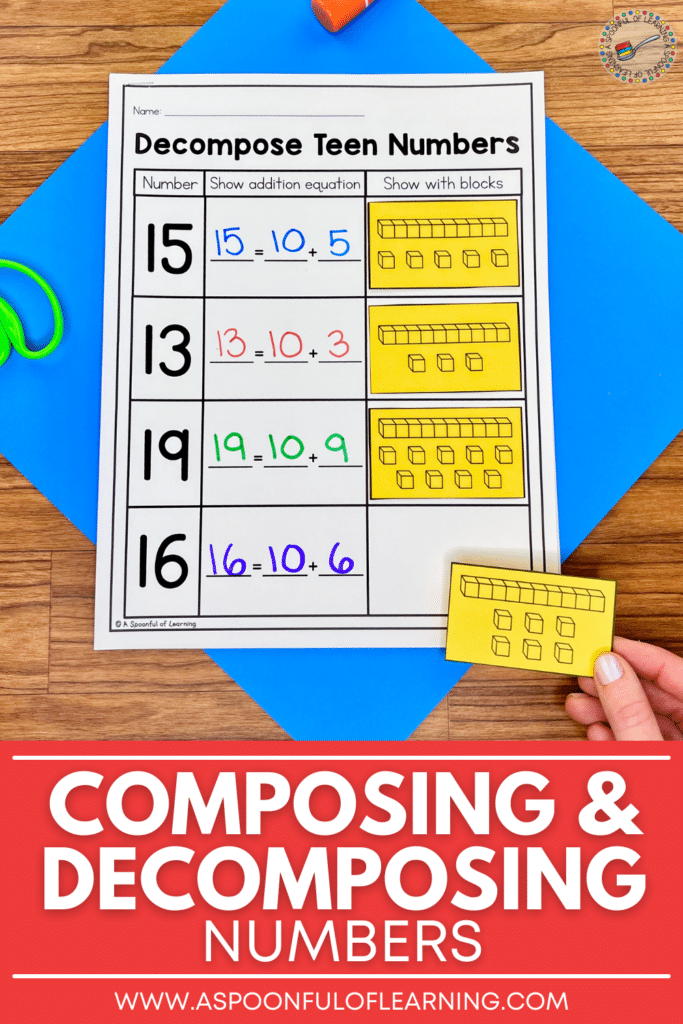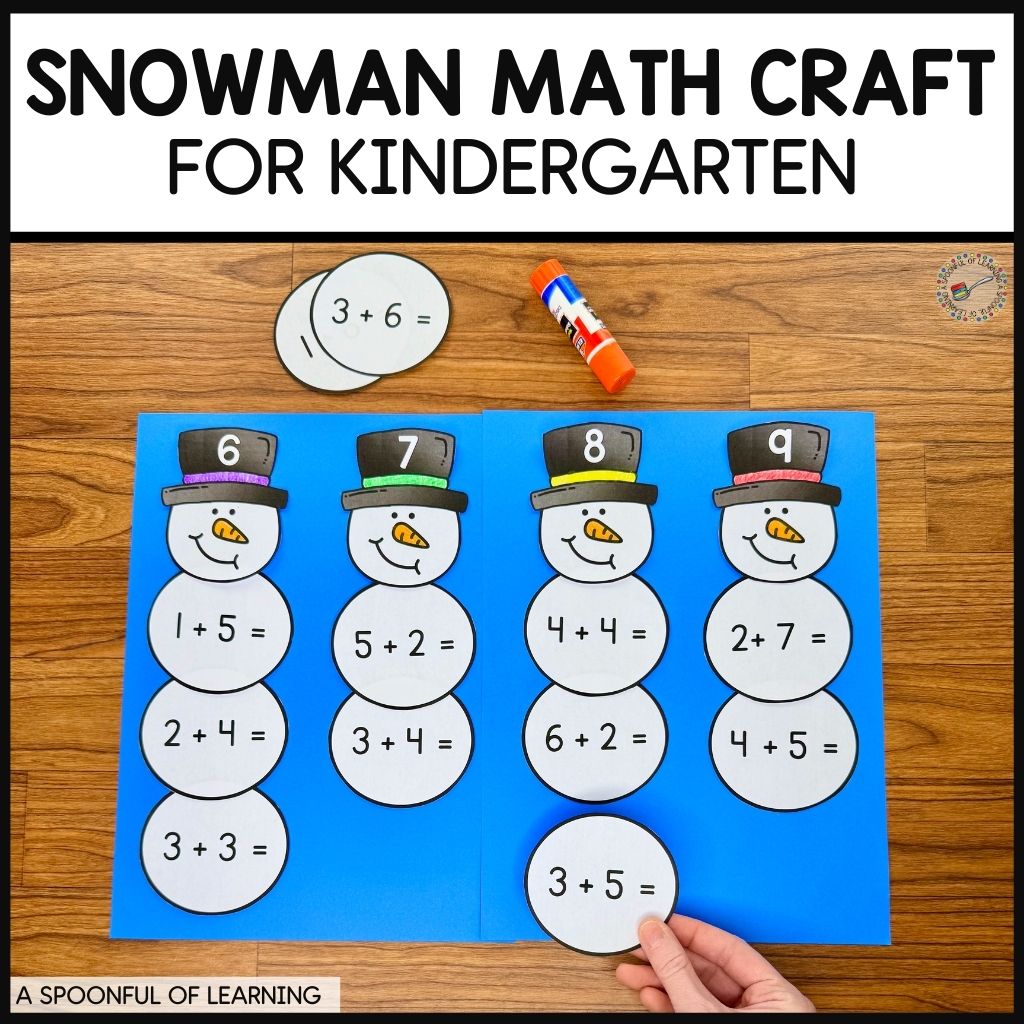
Holiday Activities and Freebies!
One of the most important parts of teaching math in kindergarten is helping students build a strong foundation of number sense. Not only do students need to know how numbers work, but they also need to know how numbers work together. That is why composing and decomposing numbers in kindergarten should be part of your math lesson plans!
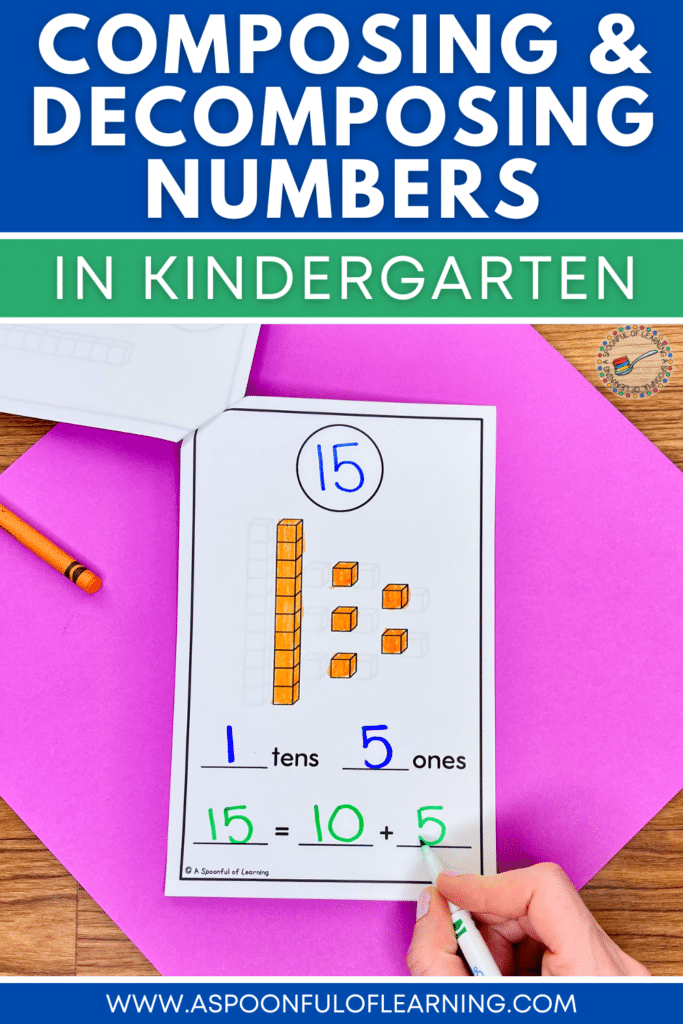
The easiest way to describe composing and decomposing numbers is that it’s the process of exploring which smaller numbers are used to create larger numbers. Composing is putting the two parts of a number together and decomposing is breaking down the number into its parts.
Since this sounds a lot like addition and subtraction, it might be tempting to skip composing and decomposing numbers and go straight to those concepts. However, taking the time to teach students how to put numbers together and take them back apart will help them in many ways:
If you’re looking for ways to help your kindergarteners compose and decompose numbers, here are a few tips:
As with any math concept, it’s important to start small when composing and decomposing numbers in kindergarten. Take time to explore numbers with fewer number combinations (like the numbers 4 and 5) before moving on to other numbers.You can even incorporate this skill into your number of the day routine! As you introduce single-digit numbers to your students, you can explore the number through composing and decomposing.
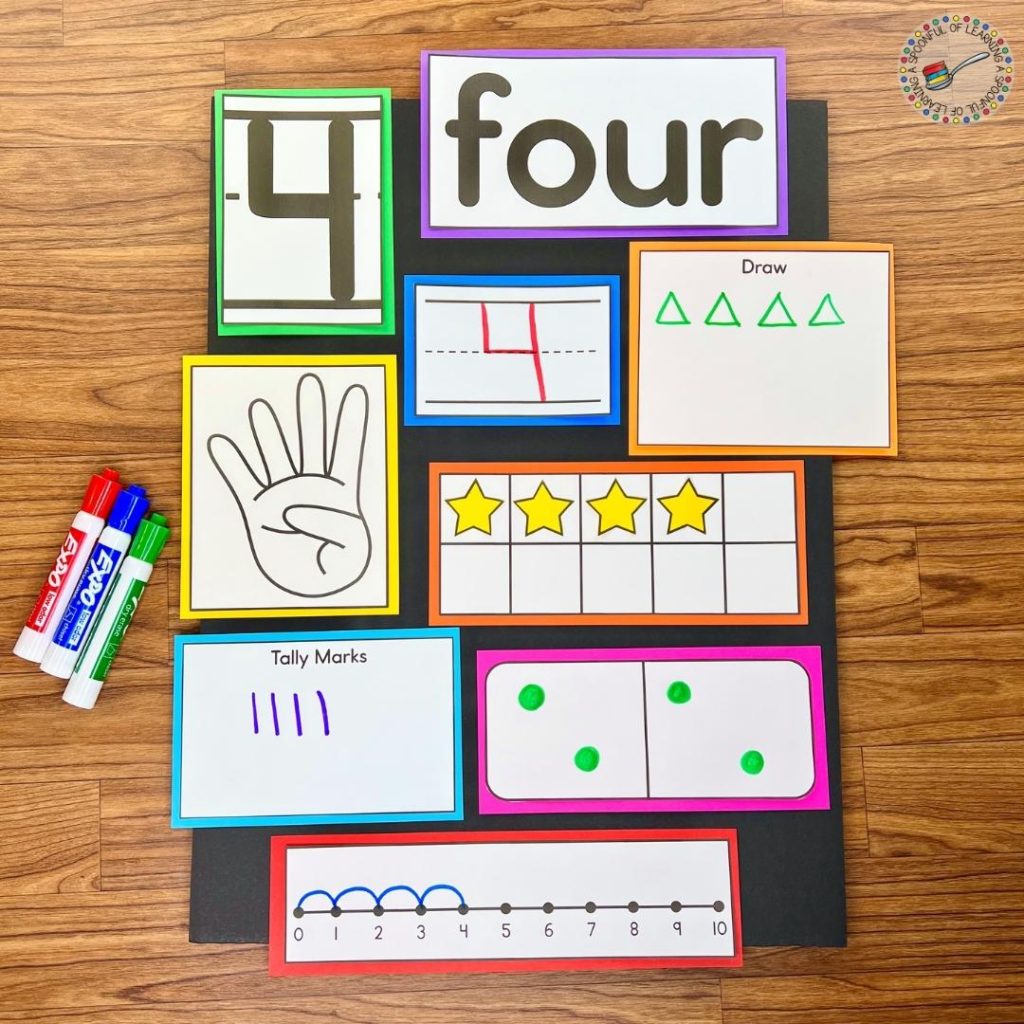
For example, my number boards for number sense practice have a blank domino on the anchor chart. You can discuss with your students the different combinations of dots that you can use to create the same number.
Another important tip for helping students compose and decompose numbers is to use manipulatives. Your students can physically break apart the total number of objects into two smaller groups. This really helps them see the relationship between the numbers in a number bond! These manipulatives can be base ten unit blocks, snap cubes, teddy bear counters, or anything you have on hand.
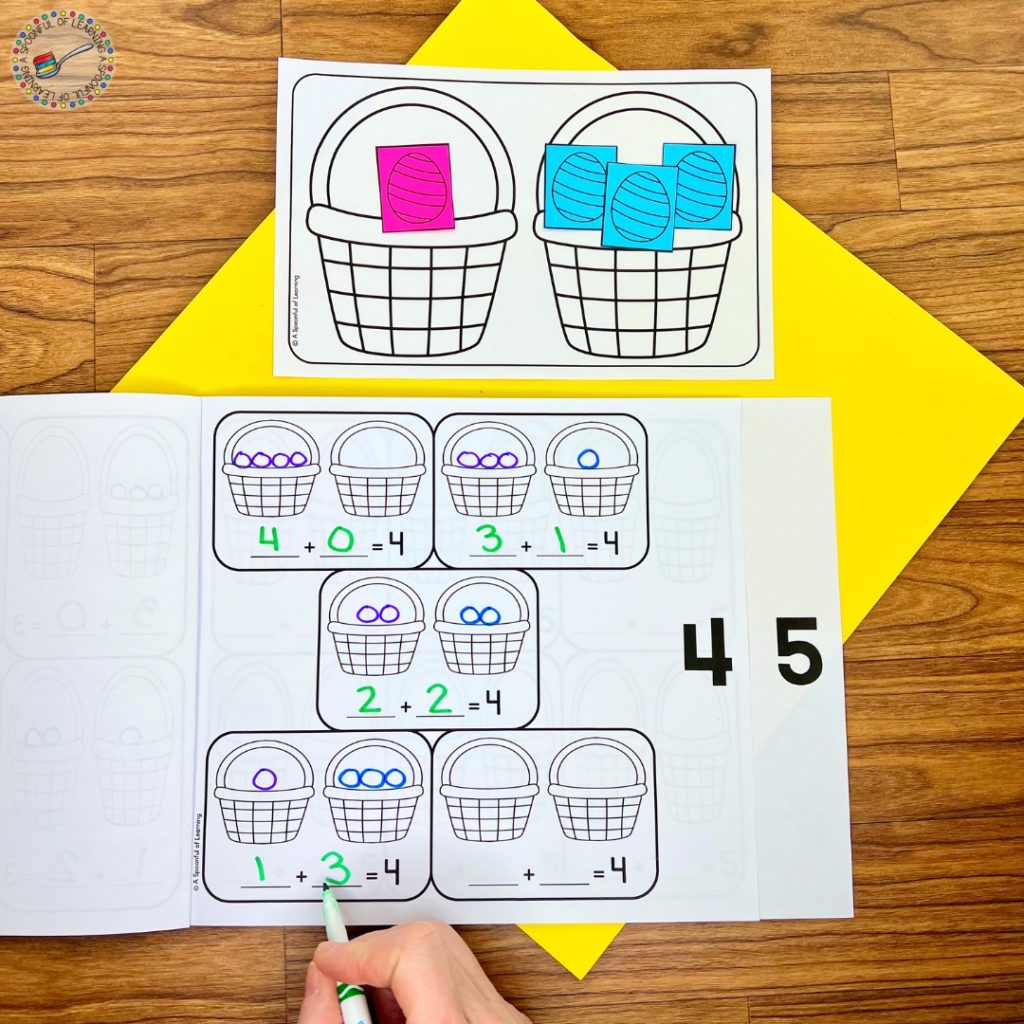
You can even use printable seasonal manipulatives to help your students practice decomposition numbers! For example, in this activity from my Easter thematic unit, students move paper Easter eggs between two different baskets to help them decompose numbers.
Once students have had a chance to explore the different ways you can make a number, it’s time to connect this concept to number sentences! Students can record the combinations they create on a number sentence frame.
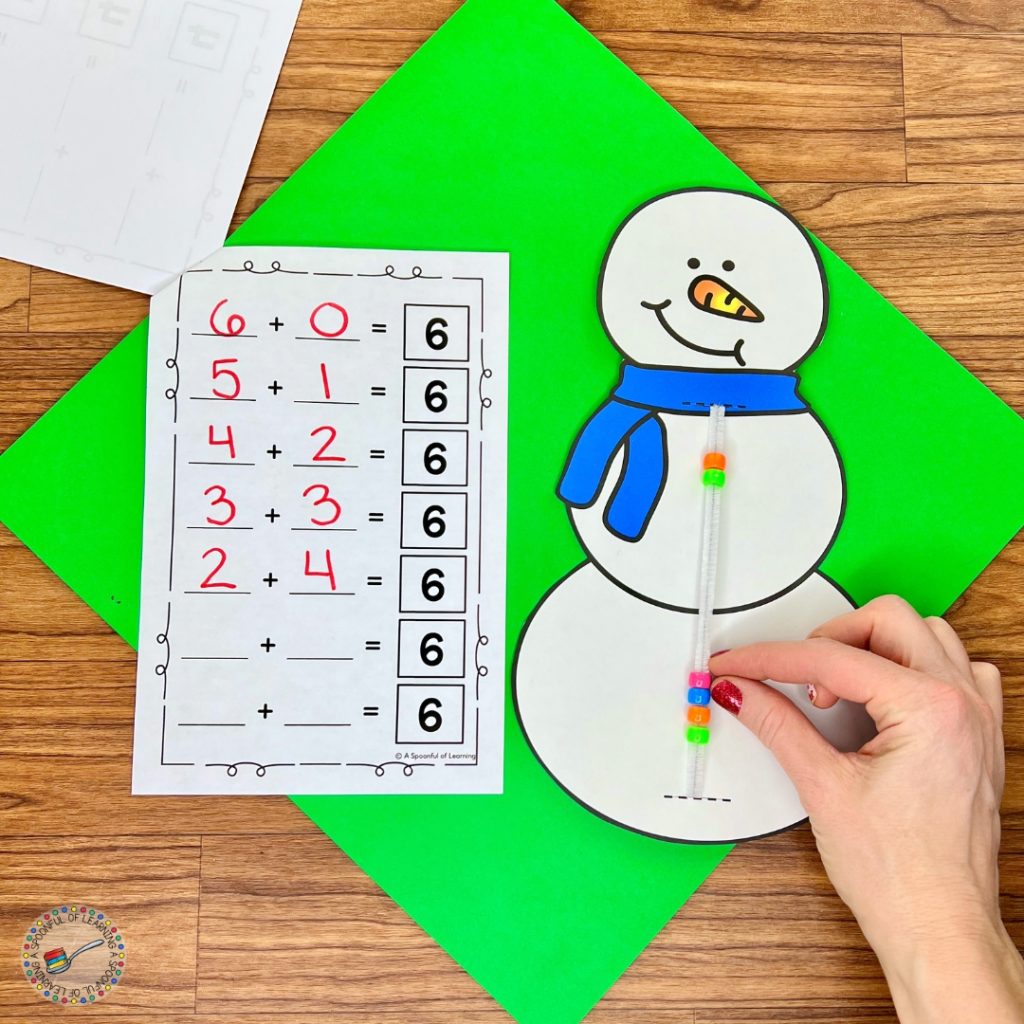
In this activity from my snowman unit, students can move the snowman’s buttons along the pipe cleaner to create different combinations of a number. For example, two beads above and four beads below. Students would then fill in those numbers on a recording sheet with number sentences. This really helps your students understand the “why” behind addition!
Composing and decomposing numbers can also be fun! There are so many fun games and activities that you can play with your students to help them build and break apart numbers.
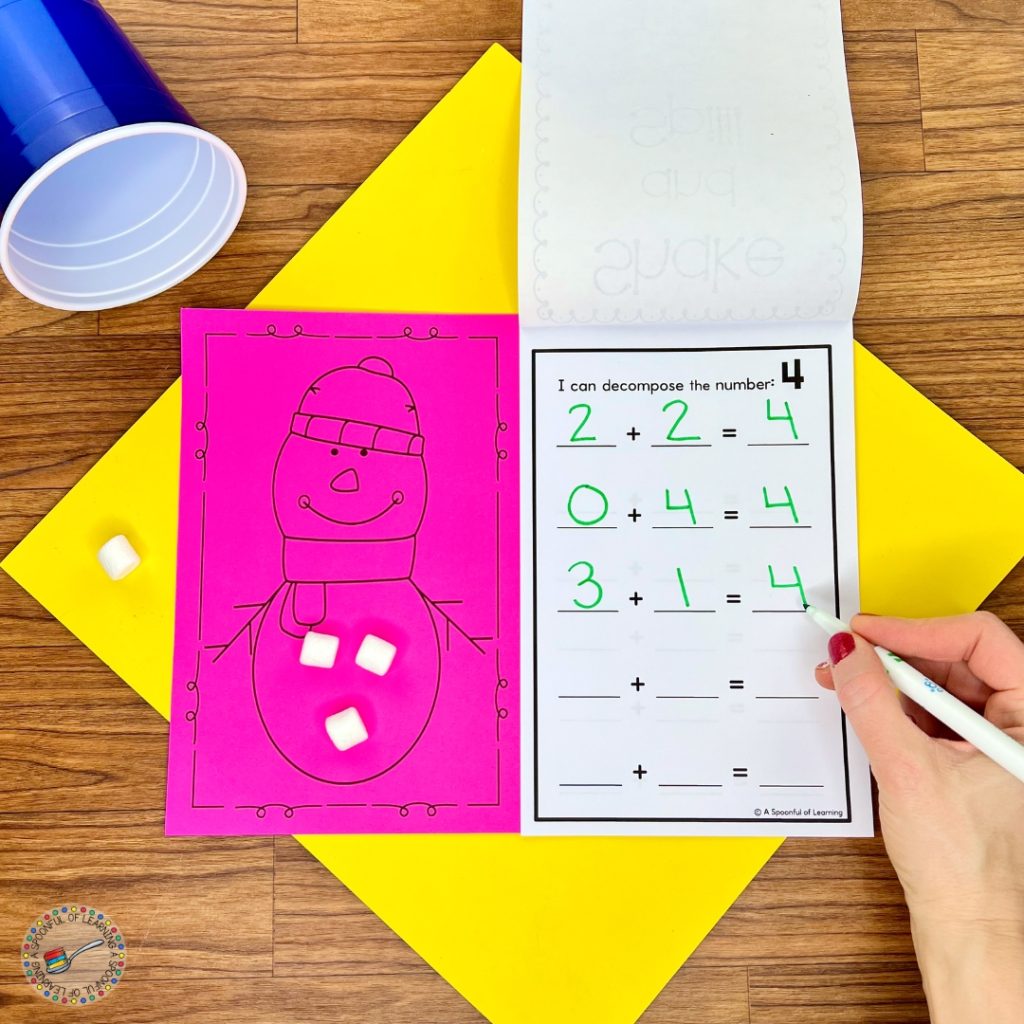
One game that is always a hit in kindergarten is “Shake and Spill.” I have a winter version of this game in my snowman unit. Students place a certain number of objects in a cup, shake the cup, and then spill the objects onto a game mat. They will count how many objects fell onto the mat and how many objects were not on the mat. This helps them explore the parts of a whole as they make the connection between the two groups of objects.
Another fun activity is to give students a stack of snap cubes and have them “break” the stack apart. They can record the different ways that their stack split by writing down the different number combinations. Students always have so much fun breaking apart their stacks of cubes.
Once your students are confident with composing and decomposing single-digit numbers, you can move on to teen numbers! When your students have a solid foundation of number sense, it makes it much easier for them to understand teen numbers.
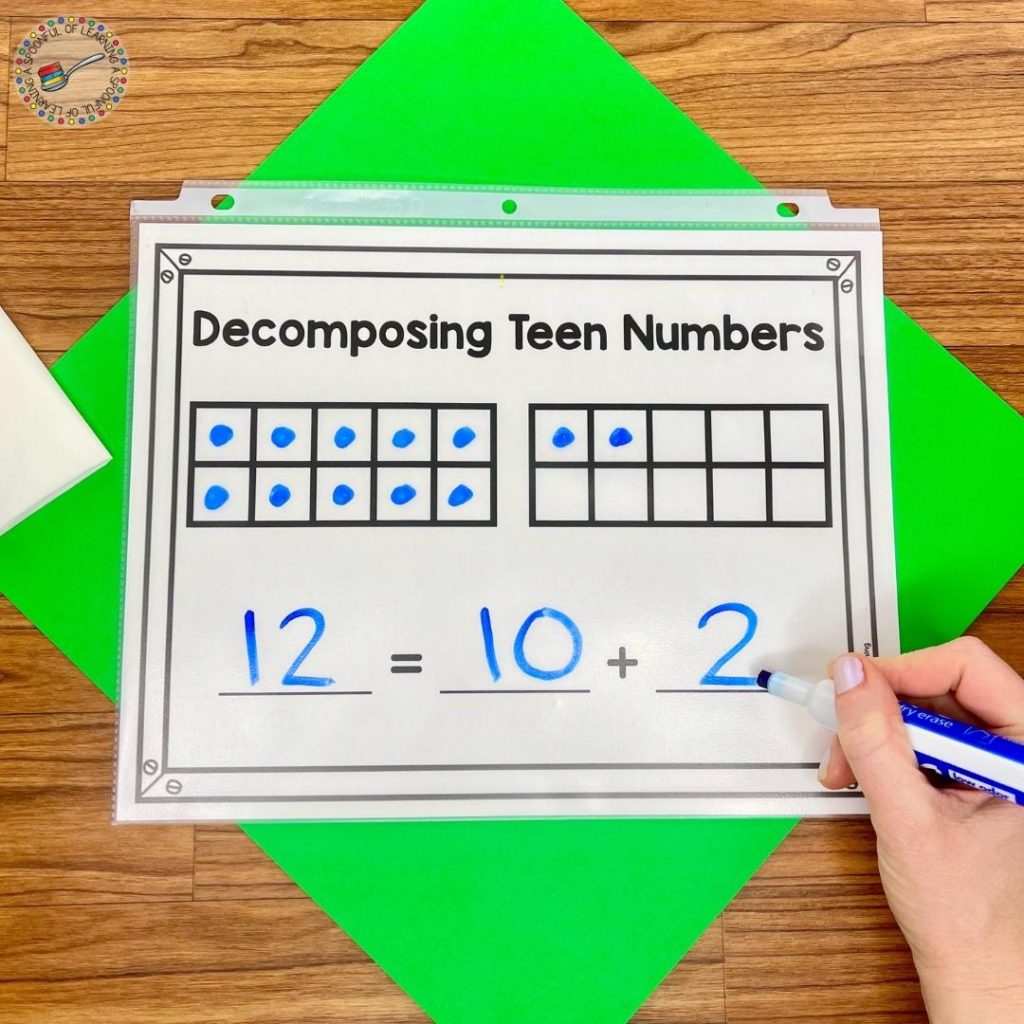
There are many different ways that you can explore teen numbers through composing and decomposing numbers. A very helpful way to do this is by using base ten blocks and ten frames!
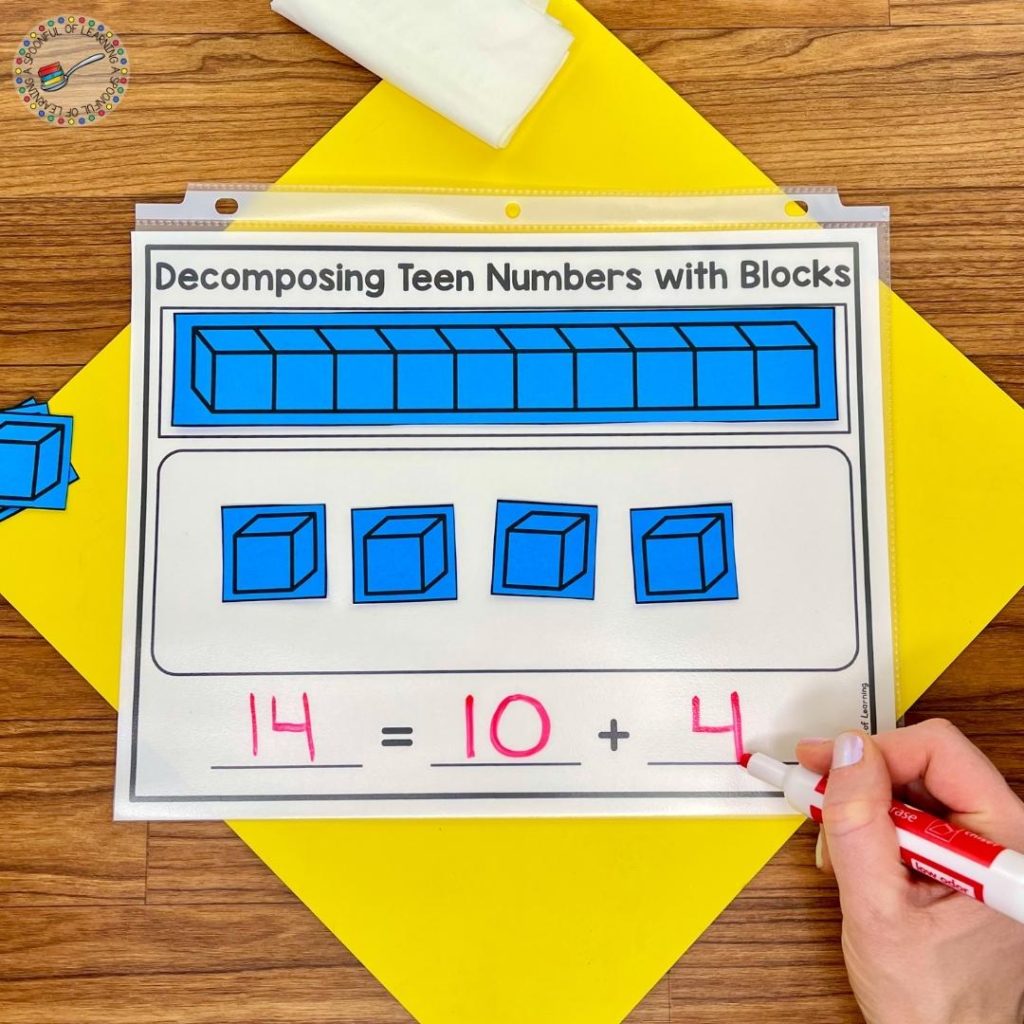
Students can see the relationship between tens and ones as they decompose teen numbers. This will help them so much as they work on future math concepts!
Are your students ready to decompose teen numbers? Check out my printable set of teen number activities for kindergarten! It has everything you need to help your students understand and practice teen numbers. You’ll find a variety of different hands-on activities for decomposing teen numbers. If you want to take a closer look at everything included in this printable resource, you can find it in the A Spoonful of Learning shop or on TPT.
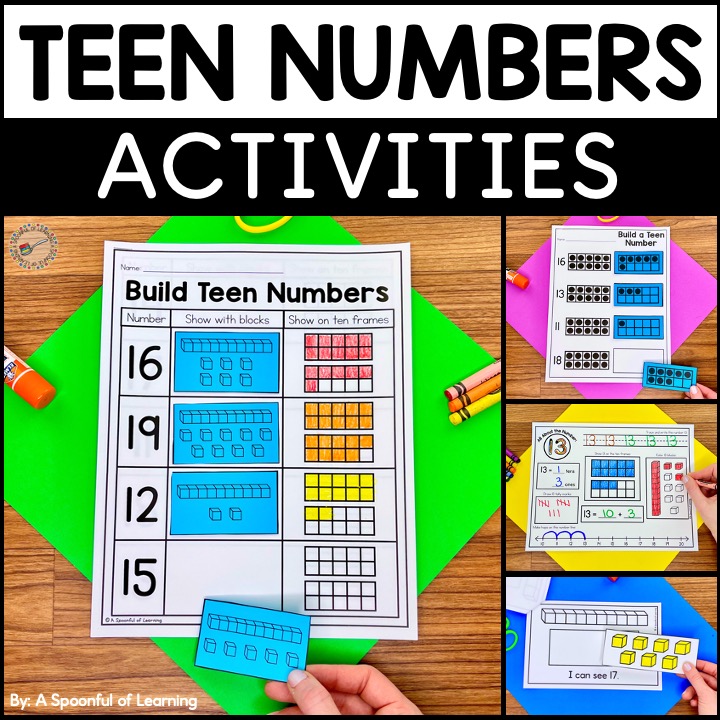
Be sure to save this post if you’d like to come back to it later! Just add the pin below to your favorite teaching board on Pinterest. You’ll be able to quickly find these tips and ideas when your students are ready to compose and decompose numbers!
